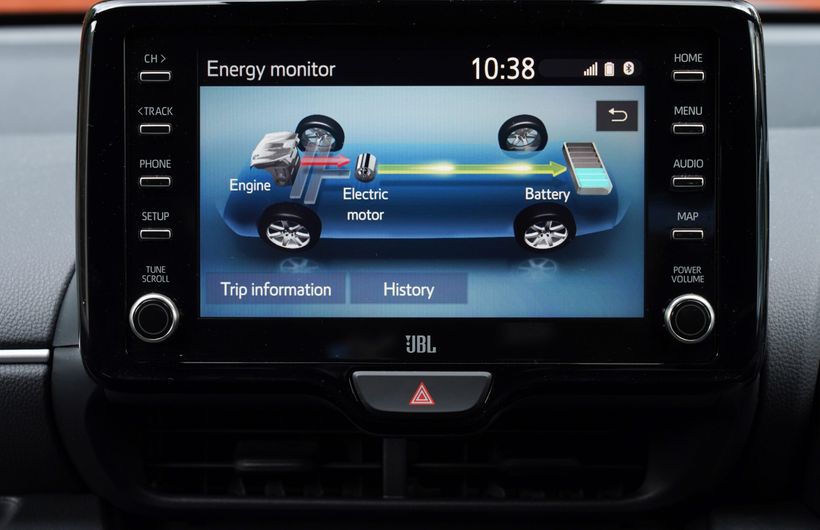Charging an electric car - or indeed a plug-in hybrid - is not always a straightforward affair. There’s a rapidly growing network of chargers out there, but a swelling number of electric drivers hooking their cars up to them. Sometimes they can be out-of-order, or just plain slow. So an electrified car that charges itself? It sounds like a winner.
You may have stumbled across the term ‘self-charging hybrid’ and been curious to understand just how this is possible. These are hybrid cars with no plug sockets in sight - the only thing you’ll need to fill is the fuel tank, and many of them are now propelled by electric motors. It sounds incredible and the tech is almost certainly cleaner than a regular petrol or diesel car. But there are no miracles at work here, and they don't hold a candle to fully-electric and plug-in hybrid cars in terms of their cost to run, tax, and their cleanliness.
How does it work?
The term ‘self-charging hybrid’ is a market term coined for what previously would have been considered a typical hybrid vehicle. These cars tend to have a very small battery, an electric motor and a larger petrol (or occasionally diesel) engine.
The battery is charged automatically using electricity created and captured when the car slows down. This happens as the electric motor switches to becomes a generator, harnessing energy which is usually wasted. It’s sort of like recycling.
This power is then used to feed the electric motor when you press on the accelerator again. As the petrol engine doesn’t have to work as hard because it’s getting a helping hand, it improves fuel economy and lowers emissions. It also makes the car feel faster.
The driver doesn’t have to do anything to initiate this process – the car just works it out itself. You can usually choose a few different modes however to make the car behave differently and be sportier or more economical.
Just to complicate things further, there’s a new type of hybrid which works in a different way. Instead of having an electric motor helping the engine occasionally, the new versions have a petrol engine which works solely as a generator to provide electricity to the battery. This is then fed to the motors which propel the car along, so there is no physical connection between the petrol engine and the wheels.
This can make the car even more economical as the petrol engine can be set to run at its most efficient levels, while the battery takes some of the strain and smooths out the peaks and troughs in demand for acceleration and braking. This system is currently used by Honda in the Jazz and Nissan in the new Qashqai, but others will follow.
So the car does indeed 'charge' itself, but not with electricity sourced from the grid - the power is always going to be drawn from recuperated energy, but mainly from burning fuel, in the case of these newer hybrid models with electric motors directly driving the wheels.
 A screen will usually tell you where the power is flowing around your hybrid system
A screen will usually tell you where the power is flowing around your hybrid system 











